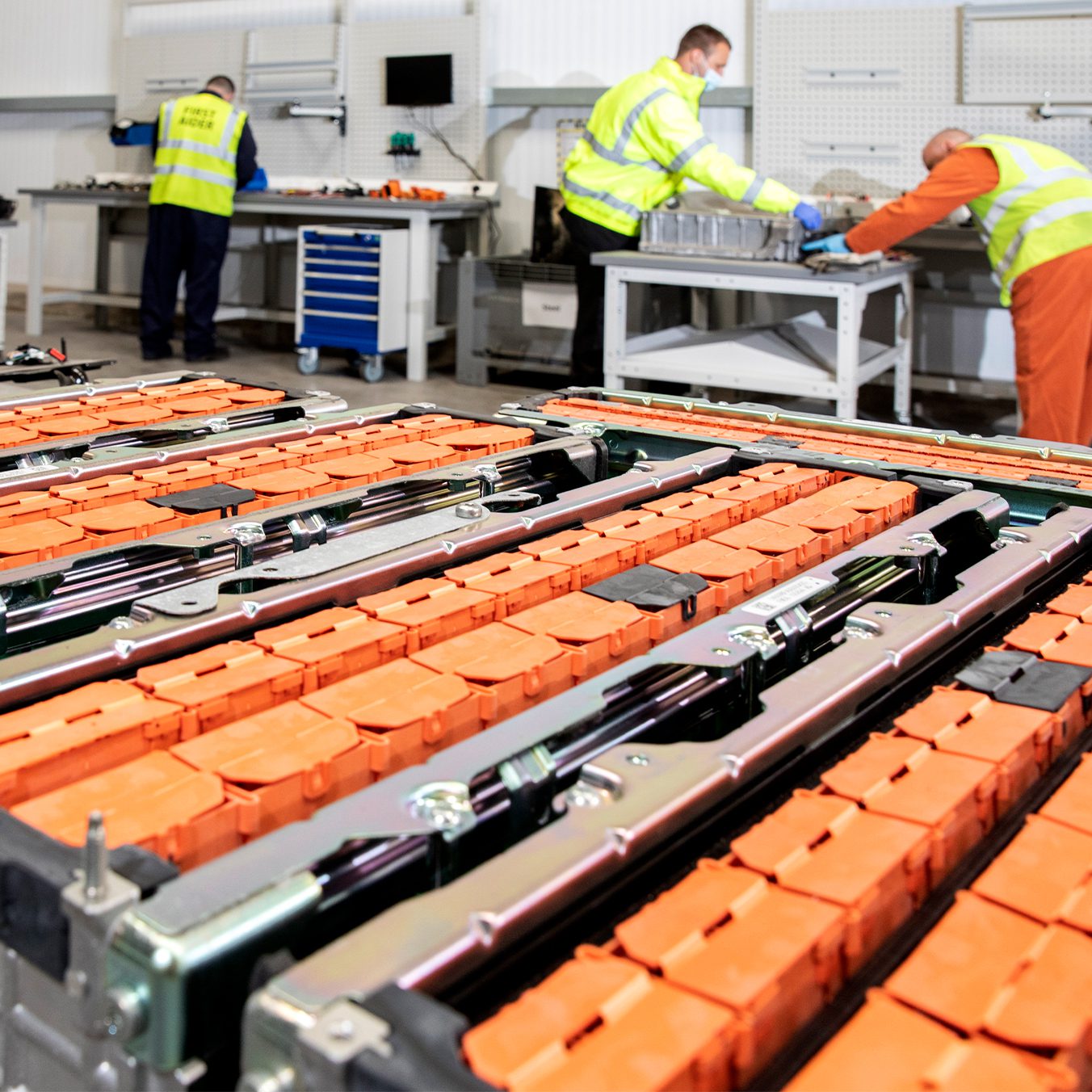
"The world is not recycling enough of its EV batteries, and the number of EV batteries capable of being recycled will only grow. Consumer education, innovative technologies, improvements in efficiency, and changes in public policy could substantially increase this number."
Thea Soule
Chief Commercial Officer
Lithium Battery Design Standards and a Sustainable EV Market
Thea Soule | March 14, 2022
With the meteoric rise of electric vehicle (EV) adoption, the incredible growth in this sector has generated supply chain questions and concerns amongst many researchers and original equipment manufacturers (OEMs). Lithium, nickel, and cobalt are essential elements to the batteries that make EVs game changing for transportation. The demand for these elements, like that of EVs, has increased substantially – elevating concerns from stakeholders ranging from OEMs to activists on how supply for all three can scale up. The world is not recycling enough of its EV batteries, and the number of EV batteries capable of being recycled will only grow. Consumer education, innovative technologies, improvements in efficiency, and changes in public policy could substantially increase this number.
Ecobat is the largest recycler of lead from batteries globally. We are using that unmatched history to add lithium batteries and therefore lithium, cobalt, and nickel to our mix– following a closed-loop approach that supports the growth of the EV industry. When an EV battery reaches its end-of-life, Ecobat can sustainably and safely deploy several solutions within its supply chain to recycle and repurpose the battery and its materials. After collecting the battery, discharging any remaining power, and diagnosing the safety and viability of the battery, individual EV battery cells can be used for the original purpose, or can find a second life in new applications such as back-up energy storage units for renewable energy.
If the battery cell cannot be reused, recyclers can disassemble, crush, and sort the cell materials into black mass, which can be further refined so that individual pure metals, such as lithium, cobalt, and nickel, can be recovered and reused. As Ecobat leads these recycling efforts, there is an opportunity to scale up the impact by adopting design standards to streamline the recycling process. A collaboration between OEMs, battery recyclers, and manufacturers to establish design standards would increase the capacity of recycles significantly. Right now, because there are so many different designs of Lithium-Ion batteries, a significant amount of time and manual effort is invested at the beginning of the recycling effort to determine how best to move the battery through the process. A single design, or even a handful, would remove the time and the cost of this step by increasing capacity and output, allowing more automation and impacting the overall economics of the recycling process.
Developing an industry design standard would lower the cost for OEMs, manufacturers, and recyclers and increase the volume of batteries available to meet the growing demand from EVs. Adopting design standards is a part of a clean energy transition, ensuring sustainability is scaled, efficient, and affordable, as the EV market continues to boom.